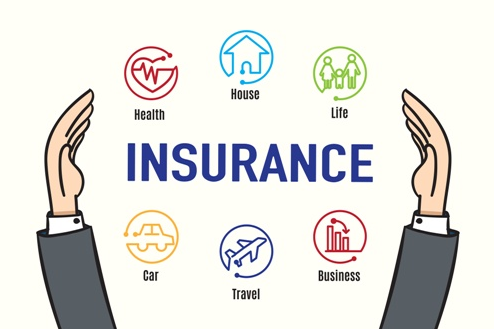College life brings about many changes, including new responsibilities like managing finances and making important decisions. One such decision is purchasing car insurance, which is essential for college students who drive. However, finding affordable car insurance can be challenging, especially for students on a tight budget. This article explores the key aspects of affordable car insurance for college students, including tips for finding the best rates and available discounts.
Understanding Car Insurance
Before diving into the specifics of affordable car insurance, it’s important to understand the basics of car insurance. Car insurance provides financial protection in the event of an accident, theft, or other incidents involving your vehicle. There are several types of car insurance coverage, including:
- Liability Coverage: This coverage helps pay for the other party’s medical bills and property damage if you’re at fault in an accident.
- Collision Coverage: This coverage helps pay for repairs to your vehicle if it’s damaged in a collision with another vehicle or object.
- Comprehensive Coverage: This coverage helps pay for repairs to your vehicle if it’s damaged by something other than a collision, such as theft, vandalism, or natural disasters.
Factors Influencing Car Insurance Rates
Several factors can influence the cost of car insurance for college students. These factors include:
- Age and Driving Experience: Younger drivers, especially those under 25, typically pay higher insurance rates because they’re considered higher risk.
- Type of Car: The make and model of your car can affect your insurance rates. Sports cars and luxury vehicles are more expensive to insure.
- Driving Record: A clean driving record with no accidents or traffic violations can help lower your insurance premiums.
- Location: Where you live can impact your insurance rates. Urban areas with higher traffic congestion and crime rates may have higher premiums.
- Credit Score: Some insurance companies use credit scores to determine rates. Students with good credit may qualify for lower rates.
Challenges Faced by College Students
College students face unique challenges when it comes to car insurance, including:
- Limited Budget: Many college students are on a tight budget, making it difficult to afford high insurance premiums.
- Lack of Credit History: Students may have limited or no credit history, which can affect their ability to qualify for lower insurance rates.
- High-Risk Age Group: Young drivers, particularly those under 25, are considered high-risk by insurance companies, leading to higher premiums.
Tips for Finding Affordable Car Insurance
Despite these challenges, there are several strategies college students can use to find affordable car insurance:
- Comparison Shopping: Compare quotes from multiple insurance companies to find the best rates.
- Utilizing Discounts for Students: Many insurance companies offer discounts for students with good grades or completion of a driver education course.
- Opting for Higher Deductibles: Choosing a higher deductible can lower your monthly premium, but be sure you can afford the out-of-pocket expense if you need to file a claim.
- Choosing a Car That’s Cheaper to Insure: Consider the cost of insurance when purchasing a car. Smaller, safer vehicles typically have lower insurance rates.
- Maintaining a Good Driving Record: Avoid accidents and traffic violations to keep your insurance rates low.
Special Programs and Discounts for College Students
Several insurance companies offer special programs and discounts specifically for college students, including:
- Good Student Discount: Many insurance companies offer discounts for students who maintain a certain GPA.
- Low-Mileage Discount: If you don’t drive often, you may qualify for a low-mileage discount.
- Pay-As-You-Drive Programs: Some insurance companies offer programs that base rates on how much you drive.
- Alumni or Organizational Discounts: Check with your college or university to see if they offer any discounts or partnerships with insurance companies.
State-Specific Considerations
It’s also important to consider state-specific factors when shopping for car insurance. Each state has its own insurance requirements and rates, so be sure to familiarize yourself with the laws in your state. Additionally, some states may offer specific discounts or programs for college students, so be sure to inquire with local insurance providers.
Alternatives to Traditional Car Insurance
In addition to traditional car insurance, there are alternative options that may be more affordable for college students, including:
- Usage-Based Insurance: This type of insurance bases rates on how you drive, rather than traditional factors like age and location.
- Peer-to-Peer Car Sharing: Instead of owning a car, consider using a car-sharing service for occasional use.
- Public Transportation Options: Many college campuses offer free or discounted public transportation options for students, which can help save on car-related expenses.
Importance of Proper Coverage
While affordability is important, it’s also crucial to ensure you have adequate coverage. Being underinsured or uninsured can lead to financial hardship in the event of an accident. Proper coverage can help protect you from costly medical bills and liability claims.
Steps to Take After an Accident
If you’re involved in an accident, it’s important to take the following steps:
- Contact Your Insurance Company: Notify your insurance company as soon as possible to report the accident.
- Document the Accident: Take photos of the scene, exchange information with the other driver(s), and gather witness statements if possible.
- Seek Legal Advice: If you’re unsure of your rights or obligations, consider seeking legal advice to ensure you’re protected.
Conclusion
Affordable car insurance is essential for college students, but finding the best rates can be challenging. By understanding the factors that influence insurance rates and utilizing discounts and programs available to students, you can find a policy that fits your budget. Remember to prioritize safety and financial security when choosing a car insurance policy.
